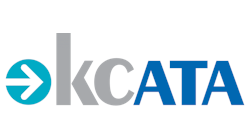Veterans Pass Available At RideKC Headquarters September 19
A special one-day RideKC Veterans Pass event slated for the morning of Tuesday, Sept. 19. From 8 a.m. to noon, veterans can come to the Kansas City Area Transportation Authority offices at 1200 E. 18th Street to get their Veterans Pass. People can reach the KCATA on RideKC’s 108 Indiana or 25 Troost routes.
Free fare on all RideKC bus routes is available to veterans with a Veterans Pass. The RideKC Veterans Pass is the only form of identification that allows veterans to ride for free. The pass is also available at the Veterans Community Project in south Kansas City, 8900 Troost, Monday through Friday, 9 a.m. to 3 p.m.
This special event on Sept. 19 will allow closer access for those living and working near midtown and downtown Kansas City, Missouri, to get a RideKC Veterans Pass. Program participants must bring valid proof of veteran status:
- Department of Veterans Affairs ID
- Active military service ID
- State of Missouri photo ID showing veteran status
The Free Fare for Veterans program began in April of this year, and the program has provided more than 400,000 rides. KCATA, in partnership with the Kansas City Veterans Administration and the VCP, is honoring veterans through this free fare program. The initiative is sponsored by the Greater Kansas City Labor Unions/AFL-CIO.
The program includes all veterans; it is not limited to disabled or decorated veterans. By reducing the cost barrier to riding transit, veterans will have improved access to jobs, healthcare and recreation.
“KCATA and our regional RideKC transit partners are proud and honored to offer this resource to those who have served our country,” said Robbie Makinen, KCATA president & CEO. “Strong community partnerships are making it possible for veterans to access jobs and recreation at no cost on RideKC.”
"Public transportation offers a critical outlet for veterans seeking to access existing services and resources,” said Chris Stout, Veterans Community Project. “For homeless veterans, mobility is often the most significant impediment to obtaining shelter, affordable housing, education, and employment.”



